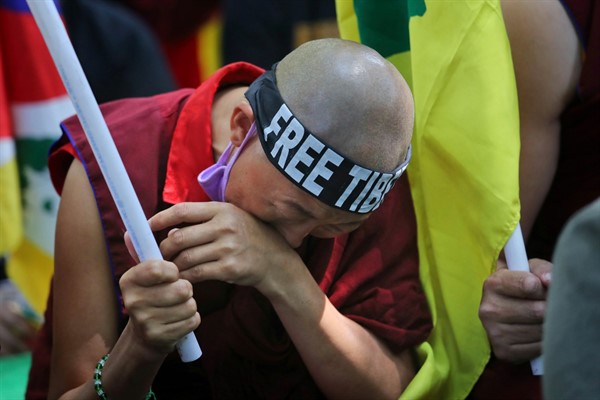Over the past several months, China watchers have been closely following as Beijing tightened its grip on Hong Kong and continued its steady strangulation of the Uighur Muslim ethnic minority in Xinjiang. But the regime successfully avoided international attention and opprobrium as it carried out what could prove to be its most devastating push elsewhere, in Tibet.
Years ago, Tibet had more success capturing the world’s attention. Under the leadership of the exiled Dalai Lama, Tibetans pared down their demands from China, from full-blown independence to genuine autonomy. The Dalai Lama was awarded the Nobel Peace Prize in 1989 and became something of a rock star. The aging, affable, globetrotting monk filled popular venues and met with leaders worldwide. Bumper stickers reading “Free Tibet” reminded politicians that standing up for the besieged Tibetan people aligned with their constituents’ wishes.
But now, the issue has fallen so far off the radar that when China drove what may ultimately be the final nail in the coffin of Tibetan autonomy, few people took notice.

